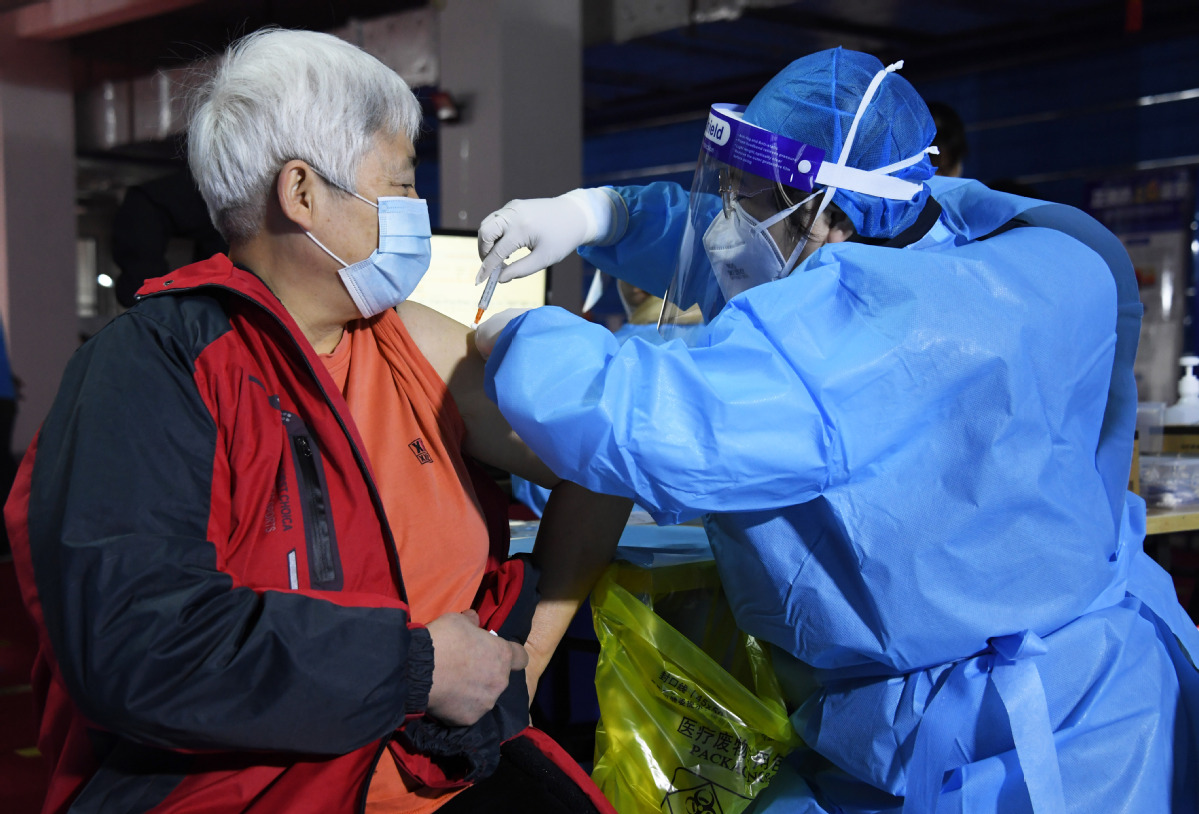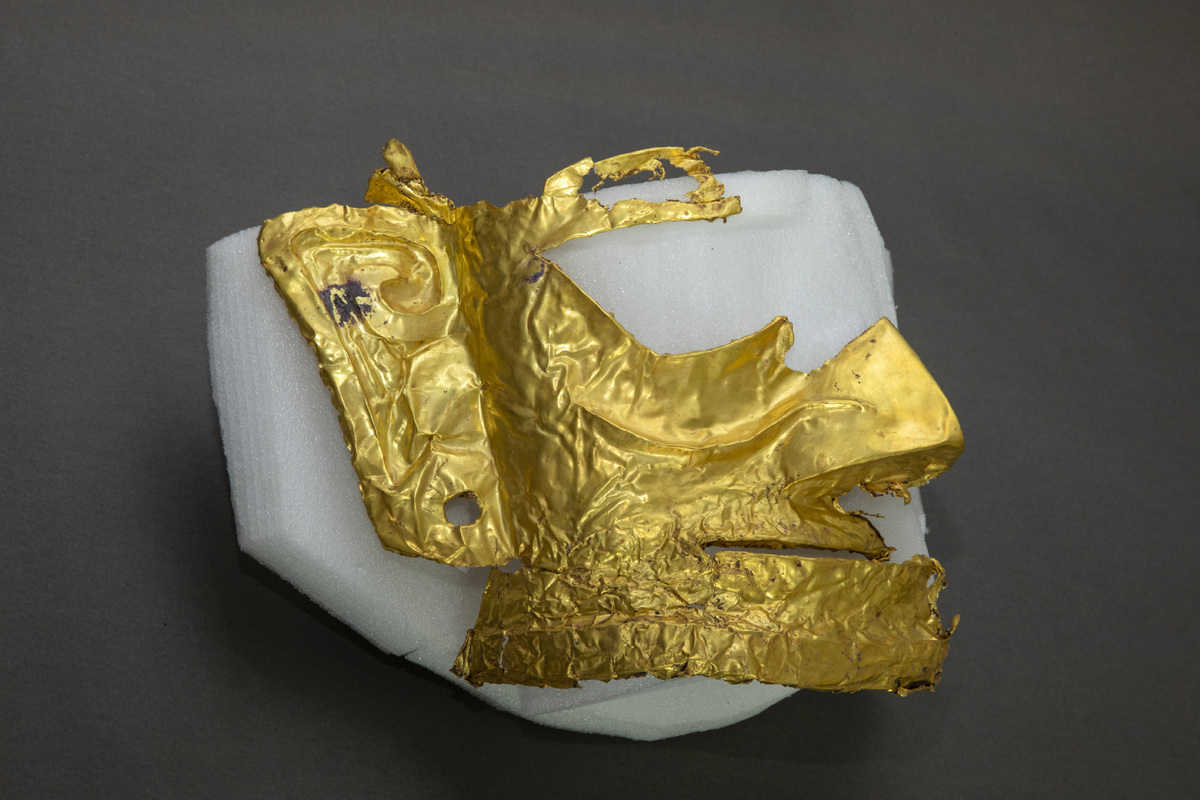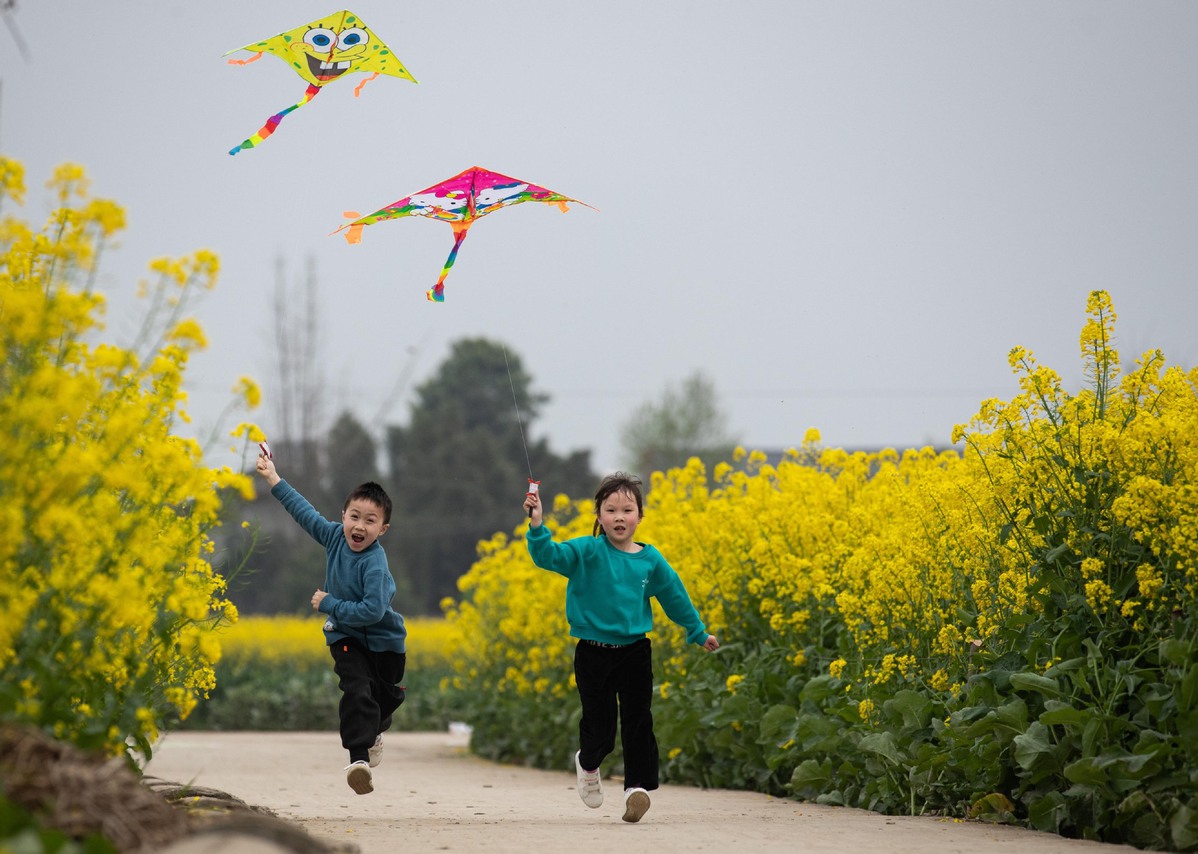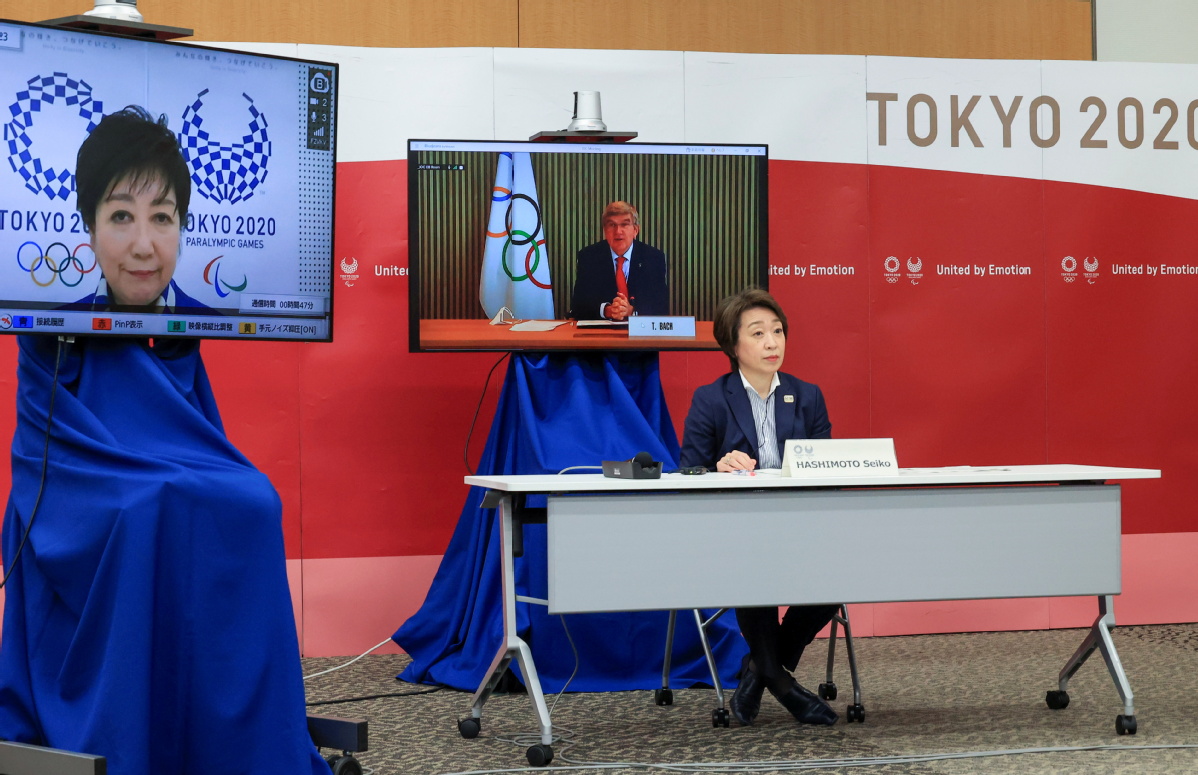Daily News (March 23)

Mass vaccinations for older adults
The elderly are vaccinated against COVID-19
China will start mass COVID-19 vaccinations for people over age 60 after it receives sufficient data from clinical trials on the effectiveness and safety of the vaccines, a senior health official said on Sunday.
He Qinghua, an official of the National Health Commission, said at a press conference on March 21 that after the clinical trials have obtained sufficient safety and efficacy data, we will carry out large-scale vaccination of the elderly over 60 years old.
Research and development of vaccines for older adults is speeding up, and some regions have started vaccinating people over 60 who are in good health, He Qinghua, an official at the National Health Commission, said at a news conference.
He Qinghua introduced that some regions have begun to vaccinate the elderly over the age of 60 with COVID-19, and vaccine research and development units are also accelerating their research and development.
A total of 74.96 million doses of COVID-19 vaccines had been administered by midnight Saturday.
As of 24:00 on March 20, the national cumulative report of vaccination 74.96 million doses.
The country will gradually increase the scale of its mass COVID-19 vaccinations in a safe, orderly manner, he said.
The next step will be to promote vaccination in a safer, more orderly and more vigorous manner, and gradually expand the coverage of the population.
Some people might think it is not urgent for them to get vaccinated as China has successfully controlled the virus, but it is still raging globally and no one can stay detached from the world, he said. "Vaccination is the most effective way to control the epidemic. I hope the public can get vaccinated quickly," he said.
He also said that because the epidemic in our country has been effectively controlled, the urgency of vaccination for many people is not too strong. But the COVID-19 pandemic is still circulating globally, and no one can be immune. "Vaccination is the most effective means to prevent and control the COVID-19 pandemic. I hope everyone will actively vaccinate."

> New discoveries at Sanxingdui Ruins
Sanxingdui archaeological excavation is’new ‘again.
Chinese archaeologists announced the discovery of over 500 cultural relics, during an ongoing excavation at the Sanxingdui Ruins site in Guanghan, Southwest China’s Sichuan province. The relics were uncovered in six sacrificial pits that date back over 3,200 years.
Archaeologists in our country announced that more than 500 cultural relics have been unearthed in the six newly discovered Sanxingdui cultural "sacrificial pits" at the Sanxingdui site in Guanghan, Sichuan. These "sacrificial pits" are about 3,200 years old.
Among the important cultural finds are gold and bronze masks, bronze ware, more than 100 ivory tusks, textiles and jade among other artifacts.
Important cultural relics unearthed include gold masks, bronze masks, bronze objects, more than 100 ivory, textiles, and other artifacts such as jade.
In No 3 pit, a rich reservoir for bronze ware, archaeologists found two square zun jars, a typical ancient Chinese bronze ritual vessel.
In the No. 3 pit, archaeologists discovered a large number of bronze vessels, including two square bronze statues, which were typical bronze sacrificial vessels in ancient China.
Such artifacts were not found in 1986. Some of the bronze ware items were decorated with dragon and ox patterns.
Some of the bronzes were decorated with images of dragons and oxen. These artifacts were not found during excavations in 1986.
The Sanxingdui Ruins is dubbed as one of the world’s greatest archeological discoveries of the 20th century.
The Sanxingdui site has been called one of the most significant archaeological discoveries in the world in the 20th century.
The site was originally discovered in the 1920s by a farmer.
The site was first discovered by a farmer in the 1920s.
A huge surprise came in 1986 when two sacrificial pits filled with more than 1,000 relics, including gold masks, bronze sacred trees, bronze ware, jade ware and ivory, were discovered by local workers excavating clay for bricks.
In 1986, when local workers were digging and burning bricks, they accidentally discovered two sacrificial pits, which contained more than 1,000 cultural relics, including gold masks, bronze sacred trees, bronze, jade, and ivory.

Bookings surge for May Day holiday
‘May Day ‘holiday ticket bookings are hot
Domestic tourism is projected to shoot up during the five-day May Day holiday as pent-up demand for travel is unleashed following its official discouragement during last month’s Spring Festival holiday to contain COVID-19 transmission risks.
During the Spring Festival holiday last month, in order to reduce the risk of COVID-19 pandemic transmission, the official did not encourage the public to travel. The pent-up demand will be released during the "May Day" holiday, and the domestic tourism industry will usher in a blowout.
The relaxation of epidemic-control measures and lifting of travel restrictions look set to make the May Day holiday – from May 1 to 5 – the first travel boom of the year, according to industry insiders.
Tourism industry insiders said that with the relaxation of epidemic prevention and control measures and the lifting of travel restrictions, the "May Day" holiday, which lasts from May 1 to May 5, will become the first tourism peak this year.
Beijing announced on March 12 that, as of March 16, travelers from areas with low risks of infection no longer need to provide negative nucleic acid test results when arriving in the capital.
On March 12, Beijing announced that from March 16, entry and return to Beijing from low-risk areas will no longer be required to provide a negative nucleic acid test certificate.
Reservations for tickets for flights and trains to or from the city doubled in the hours after the announcement, according to an online travel agency.
According to data from an online travel agency, within an hour of the announcement, the number of air and train tickets booked in and out of Beijing doubled compared with the same period the previous day.
Bookings for trips during the Tomb Sweeping Day holiday – April 3 to 5 – also roses.
Travel bookings for the Qingming holiday from April 3 to April 5 also rose immediately.
Figures from Qunar show that reservations for flight tickets for the May Day holiday have exceeded those during the same period in 2019.
The number of ticket bookings for the "May Day" holiday on the Qunar platform has exceeded that of the same period in 2019.

Fans from abroad barred from Olympics
Tokyo Olympics no overseas spectators
Overseas spectators will be banned from entering Japan to watch the Tokyo Olympics and Paralympic Games this summer due to COVID-19, the Tokyo 2020 organizing committee announced on Saturday.
The Tokyo Olympic Organizing Committee announced on March 20 that foreign spectators will not be allowed to attend the Tokyo Olympic and Paralympic Games due to the ongoing COVID-19 pandemic.
Tokyo 2020 President Seiko Hashimoto told a news conference that the decision was made by the Japanese parties and the International Olympic Committee and the International Paralympic Committee were informed at a virtual meeting earlier.
Tokyo 2020 Organizing Committee President Seiko Hashimoto said at a press conference that the Japanese side had made a decision and informed the International Olympic Committee and the International Paralympic Committee in a previous video conference.
The five-party meeting was attended by IOC President Thomas Bach, IPC chief Andrew Parsons, Japan’s Olympic Minister Tamayo Marukawa, Tokyo Governor Yuriko Koike, and Hashimoto.
International Olympic Committee President Thomas Bach, International Paralympic Committee President Andrew Parsons, Japanese Olympic Minister Tsudai Marugawa, Tokyo Governor Yuriko Koike and Hashimoto attended the five-party online meeting.
A joint statement was released after the meeting, saying that the Japanese side has concluded that "overseas spectators will not be allowed to the Olympics and Paralympic Games because of the COVID-19 pandemic."
After the meeting, the five parties issued a joint statement saying that the Japanese side concluded that "due to the ongoing COVID-19 pandemic, overseas spectators will not be allowed to attend the Tokyo Olympic and Paralympic Games."
Hashimoto said that a total of 600,000 tickets have sold out of Japan for the Olympic Games and 60,000 for the Paralympic Games. All the tickets will be reimbursed, she said.
Hashimoto said that a total of 600,000 Olympic tickets and 60,000 Paralympic tickets have been sold overseas, and these ticket holders will be refunded the original price.
A decision on how many local fans will be allowed into the venue will be made by the end of April.
Regarding the limit of unique viewers in Japan, a judgment will be made before the end of April.
To find more audio news on the China daily app